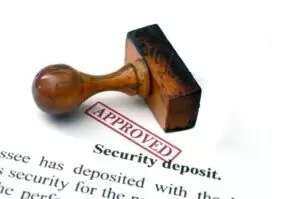Just about anyone who has rented or leased a property is familiar with the concept of a security deposit. What exactly is the purpose of this deposit and when is a tenant entitled to have it returned when they move out? We’re here to go over the basics to help you out.
The uses of a security deposit
According to Michigan’s Security Deposit Law, a security deposit can be required for any type of home rental agreement. This includes, but is not limited to, apartments, mobile homes, single-family dwellings and boarding houses. The specifics amount that you require your tenants put down as a security deposit must be covered in the lease agreement that both you and your tenant will sign.
Keeping and returning security deposits
Tenants can generally expect to get all or most of their security deposit back by doing a few simple things. All rent and utility costs should be paid before moving out. Any aspects of the house or apartment that have been damaged by the tenant in excess of what would be considered normal wear and tear should be repaired or replaced.
Landlords are able to keep a security deposit to cover any of the above expenses. Under the law, acceptable reasons to withhold a deposit are unpaid rent, unpaid utilities, early lease termination and excessive damages. A landlord must provide an itemized list of damages with the remainder of a deposit – if it exists – within 30 days of a tenant moving out. We have a full guide on security deposits available on our website.
While a security deposit may cover some damages or unpaid bills, a landlord may ask the tenant for more money if there are several months of unpaid rent or extensive damages. If a tenant and landlord cannot come to an agreement about when and how much money is owed, a lawyer may need to be contacted. Any damages or expenses in excess of what is covered by the security deposit can be pursued in court, though a landlord typically must start a case within 45 days of the occupant vacating the premises.
With this information in mind, landlords and tenants should be able to come to a reasonable understanding in regards to security deposits that works out in favor for both parties. In the event of a problem, make sure you contact the experienced team at The Law Offices of Aaron D. Cox, PLLC.

